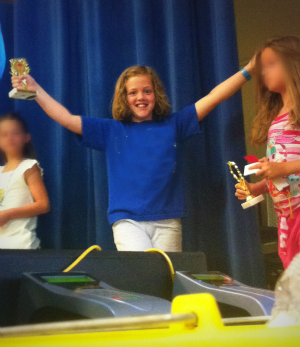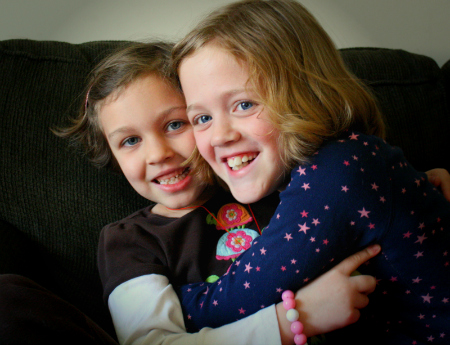Scene: yesterday, while discussing me going to Chicago this week for BlogHer ’13.
Mira: Mommy, I’m really going to miss you.
Me: I know, sweetie, but I’ll only be gone for a few days.
Mira: I’ll still miss you and think about you every day.
Me: Thank you, Mira. I’ll miss you, too.
(turning to Cordy)
Me: What about you, Cordy? Will you miss me while I’m gone, too?
Cordy: (shrugging) Nah.
Aaron: Cordy, you’ll miss mommy when she’s gone, won’t you?
Cordy: (backpedaling) I, uh, I mean…I’ll try to miss you!
Aaron: Not quite right.
Cordy: Oh, OK, I’ll try NOT to miss you!
Me: It’s OK, Cordy, I’ll miss you, whether you miss me or not.
Sigh.




